Archive for May 23rd, 2012
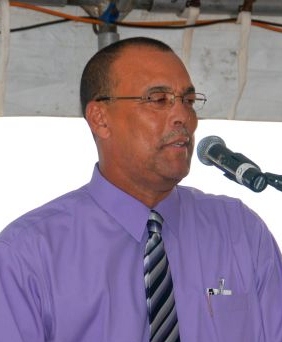
Customs collector steps down after 40 years
 (CNS): After over 40 years in the department Carlon Powery, the customs collector, will be retiring on 31 May. According to a government release, Powery has said his decision to retire before the compulsory retirement age in the civil service was to provide an opportunity for senior staff to advance. He began working with customs over four decades ago in the early 1970s whencustoms collected a few million dollars in revenue each year. As he approaches retirement he is responsible for collecting over $150 million at government’s single biggest revenue earning government entity.
(CNS): After over 40 years in the department Carlon Powery, the customs collector, will be retiring on 31 May. According to a government release, Powery has said his decision to retire before the compulsory retirement age in the civil service was to provide an opportunity for senior staff to advance. He began working with customs over four decades ago in the early 1970s whencustoms collected a few million dollars in revenue each year. As he approaches retirement he is responsible for collecting over $150 million at government’s single biggest revenue earning government entity.
“We’ve taken this task very seriously. We want to ensure that whatever revenue is due to government is collected. And we have no extravagances here, being really prudent in ourexpenses over the years,” Powery stated in a government release.
Although the department has grown significantly during his tenure, the staff is 100 percent Caymanian, including 12 new officers who joined in April this year. Powery himself began as a recruit after high school, joining the team of nine staff members in February 1972.
First housed in a small office located near Hog Sty Bay, the department then moved to the old airport terminal and a small unit located in the General Post Office, before moving into the Tower Building in 1984 and finally Customs Headquarters on Airport Road in 1993.
Powery rose through the ranks from clerical assistant to customs officer, then senior customs officer, followed by assistant collector and deputy collector before taking over the helm in 1988 and becoming the longest serving collector to date for the Cayman Islands.
As well as collecting revenue, Powery has overseen the evolution of customs into a major law enforcement agency. Customs now deals with border protection and control, counter-terrorism and combating crime, as well as collecting duty on imports. The department’s marine and K-9 units are among the islands’ main law enforcement resources.
With the advent of new technology and in particular the new sophisticated, non-invasive inspection system for containers, Powery recalled the early days of his career. He said when he joined, all cargo, even an automobiles, was off-loaded manually, using a block and tackle, and containers continued to be inspected manually.
“We have come a very long way indeed,” he said. The new scanner has helped Powery to achieve the goal of 100 percent inspection of all cargo entering and exiting the Islands.
Although stepping down from his senior post, Powery said he remains willing to offer his services in whatever way government can benefit from his 40 years’ of expertise but he was looking forward to family time, especially with his grand-daughters, his church and his hobbies — gardening and raising cattle.

UK anti-corruption cops investigated for corruption
 (The Guardian): Detectives from Scotland Yard's anti-corruption unit have allegedly received payments from a firm of private investigators. Scotland Yard is investigating allegations that detectives working for its anti-corruption unit have been paid thousands of pounds by a firm of private investigators. A parliamentary inquiry was told today that invoices, also seen by the Guardian, purport to show how a firm of private investigators made payments in return for information about the Metropolitan police investigation into James Ibori, a notorious Nigerian fraudster.
(The Guardian): Detectives from Scotland Yard's anti-corruption unit have allegedly received payments from a firm of private investigators. Scotland Yard is investigating allegations that detectives working for its anti-corruption unit have been paid thousands of pounds by a firm of private investigators. A parliamentary inquiry was told today that invoices, also seen by the Guardian, purport to show how a firm of private investigators made payments in return for information about the Metropolitan police investigation into James Ibori, a notorious Nigerian fraudster.
On Tuesday, the Commons home affairs select committee was told by a lawyer involved in the case that invoices showed about £20,000 of potential payments to police officers in what amounted to an undetected case of "apparent corruption right at the heart of Scotland Yard".
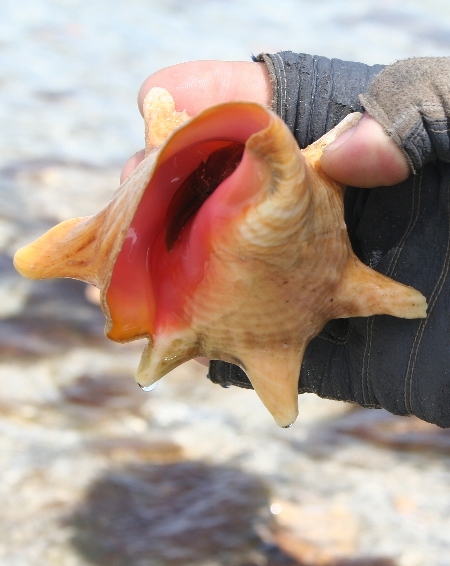
Chinese Caribbean workers accused of illegal fishing
 (Caribarena): Chinese immigrant workers believed to be attached to the VC Bird International Airport expansion project were reportedly caught fishing buckets of juvenile conch from the grassy areas along Shell Beach. Marine conservationist Eli Fuller said based on reports, a group of Chinese immigrants gathered to collect a quantity of marine life for their own consumption. The police were called, but eyewitnesses said the police took so long to respond that by the time they arrived, the catch was already gone. Fuller said while he does not believe the conch was meant for export or sale, stricter measures must be implemented to safeguard delicate marine life that is guarded by legislation.
(Caribarena): Chinese immigrant workers believed to be attached to the VC Bird International Airport expansion project were reportedly caught fishing buckets of juvenile conch from the grassy areas along Shell Beach. Marine conservationist Eli Fuller said based on reports, a group of Chinese immigrants gathered to collect a quantity of marine life for their own consumption. The police were called, but eyewitnesses said the police took so long to respond that by the time they arrived, the catch was already gone. Fuller said while he does not believe the conch was meant for export or sale, stricter measures must be implemented to safeguard delicate marine life that is guarded by legislation.
“Conchs have to be a certain size according to the law," Fuller said, "and they were all juvenile conch."
According to Fuller, there have been several reports of Chinese immigrant workers “doing things like that”.
Got to article
http://www.caribarena.com/antigua/news/latest/100585-chinese-suspected-of-illegal-fishing.html#ixzz1vjVnBiGp

Tourism threatened in TCI over sickness outbreak
 (CNS):Officials in the Turks and Caicos Islands are currently investigating and attempting to contain an outbreak of sickness in resorts on the island of Providenciales. So far the source of the diarrhoea and vomiting in some resorts has not yet been identified but samples have been sent to the US for testing. The government said that the ministry of health, the environmental health department are working with the TCI Health Surveillance Team, Hotel Association and Tourist Board to address the situation which could impact the islands tourism product.
(CNS):Officials in the Turks and Caicos Islands are currently investigating and attempting to contain an outbreak of sickness in resorts on the island of Providenciales. So far the source of the diarrhoea and vomiting in some resorts has not yet been identified but samples have been sent to the US for testing. The government said that the ministry of health, the environmental health department are working with the TCI Health Surveillance Team, Hotel Association and Tourist Board to address the situation which could impact the islands tourism product.
“Public health teams are assessing, identifying and reporting on the situation utilizing Caribbean Epidemiology Centre (CAREC) and Pan American Health Organization/World Health Organization (PAHO/WHO) guidelines. Their top priority is to protect the public as well as the tourism industry from any further illness by containing any outbreak,” officials stated in a government release. “Public health professionals are working with hoteliers to gather data on the number of cases and to determine if there is any common cause. Samples have already been sent to a laboratory for investigation in the US and results are currently awaited. As a precaution, refresher hygiene training courses for all hotel staff are being arranged.”
People experiencing diarrhoea, abdominal pain or vomiting are being told to report to their nearest health care facility and that the surveillance team will be interviewing people experiencing symptoms in order to help pinpoint the source of the outbreak.
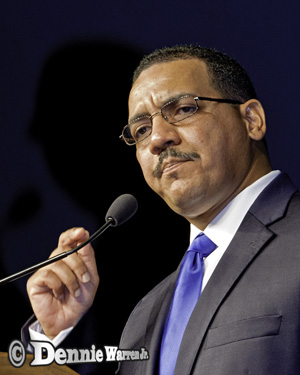
Minister charged with DUI
 (CNS): The education minister has been charged with DUI following a crash on the West Bay Road in the early hours of Wednesday morning. Rolston Anglin was charged at the George Town police station where he was taken after his arrest at the scene of what is believed to be a single vehicle smash in which the minister was said to be uninjured. The RCIPS confirmed that a 40-year-old man was arrested after police received a report that a car had crashed off the road into a ditch near to the Avalon apartment complex. “The man was subsequently conveyed to George Town police station, where he was charged with Driving Under the Influence before being released on police bail,” police said. (Photo Dennie Warren Jr)
(CNS): The education minister has been charged with DUI following a crash on the West Bay Road in the early hours of Wednesday morning. Rolston Anglin was charged at the George Town police station where he was taken after his arrest at the scene of what is believed to be a single vehicle smash in which the minister was said to be uninjured. The RCIPS confirmed that a 40-year-old man was arrested after police received a report that a car had crashed off the road into a ditch near to the Avalon apartment complex. “The man was subsequently conveyed to George Town police station, where he was charged with Driving Under the Influence before being released on police bail,” police said. (Photo Dennie Warren Jr)
“The circumstances surrounding the crash are being investigated,” the spokesperson added.
Anyone who wasin the area at the time of the crash and has information which could assist the investigation should contact George Town police station on 949-4222.
CNS has so far been unsuccessful in its efforts to contact the minister for comment.

Private Brac paving illegal
 (CNS): The public purse has shelled out over a half million dollars to pave private parking lots in Cayman Brac, even though there is no legal provision for that work. In a public interest report the auditor general said that District Administration broke the law when it paved private lots using public money. In one of two new reports released to the public on Wednesday, Alastair Swarbrick found that $521,090 of over $3 million spent on a major public road paving project on the Sister Island was used to pave 56 private lots along the way, although there is no budgetary authority for those lots to be paved. As he released the report, Swarbrick said that he would be passing it to the attorney general for his consideration.
(CNS): The public purse has shelled out over a half million dollars to pave private parking lots in Cayman Brac, even though there is no legal provision for that work. In a public interest report the auditor general said that District Administration broke the law when it paved private lots using public money. In one of two new reports released to the public on Wednesday, Alastair Swarbrick found that $521,090 of over $3 million spent on a major public road paving project on the Sister Island was used to pave 56 private lots along the way, although there is no budgetary authority for those lots to be paved. As he released the report, Swarbrick said that he would be passing it to the attorney general for his consideration.
The report is Swarbrick's first public interest report carried out as a result of concerns raised over the inclusion of private sector property in a public funded roads programme. Different from a performance audit, the public interest report was to establish the facts surrounding the project. The auditor said he found that the lots paved belonged to commercial private premises and churches but not residential homes or driveways.
In its response to the auditor general’s findings, the ministry said the NRA does not control road construction in the Sister Islands. The officials said they did not accept there was anything in the roads law that prevented the paving of private lots and that the money was allocated under the ministry’s road maintenance budget.
However, Swarbrick pointed out that this was not the case as he raised his concerns about the position of the ministry.
"I have real concerns about their response as all expenditures have to be authorized by the Legislative Assembly and the budget allocation was approved for public roads and not private parking lots," he said. "There was no explanation and no legal authority for it."
Swarbrick stated that if the attorney general takes no action he would give furtherconsideration and had not ruled out reporting the matter to the Anti-corruption Commission. "This is a serious issue,' he said.
"Public funds have been used for a project that has not been authorized. And beyond the lack of authorization there is an issue of fairness and equity about why private lots can be paved with public money in the Brac but not elsewhere. However, the fundamental issue is government was simply not authorized to do this and if it can go ahead and do something like this, what else would it do?" he asked.
Explaining the motivation for the report, Swarbrick revealed that concerns had been raised directly with his office about the inclusion of private lots and driveways in the government’s road paving project on Cayman Brac.
He explained that during the review his office did not seek to determine why particular lots were or were not paved as all of the private parking lots of commercial premises and churches were done without authorization. Swarbrick noted that speculation that the lots were paved because of political influence was a secondary matter and not directly relevant to his findings.
Swarbrick said that the priority for his office was to determine if the work of the paving programme was carried out in accordance with the roads law, the public management and finance law and with reasonable management practices.
According to the report, Colford Scott from the NRA was appointed as the project manager on the programme, which District Administration was given the responsibility for by the Ministry of District Administration, Works, Lands and Agriculture. The work was carried out by public works staff on the Brac and government also purchased a Hot Mix Asphalt portable plant because it said it would not be able to contract a private sector company to supply the asphalt.
Swarbrick found that there was no documented business case for the whole programme and in particular for the paving of private lots that could show the value or benefit to the public purse under the PMFL. Because the programme was worth more than $300,000 a business case should have been submitted to the public sector investment committee.
He also found that although the procurement of the hot mix asphalt plant was carried out in line with proper procurement process, again no formal business case for the purchase was made, even though the plant cost more than $600,000, double the amount where the requirement is triggered.
Swarbrick said there was no documentation justifying the ministry’s decision to purchase its own asphalt plant rather than contracting an existing supplier but some explanation had been made in an answer to a parliamentary question in the Legislative Assembly last year.
The audit office also criticised the appointment of Colford Scott as project manager, which he said could have presented a conflict of interest, and as the contract was worth more than $50,000 the ministry should have documented its justification for a sole supplier or opened the contract to competitive tender.
Swarbrick said his findings would provide information “for consideration by the Legislative Assembly” especially in regard to the failures to comply with laws and regulations, but the report was also going to the attorney general's office for him to determine if legal action was required regarding the Office of the Auditor General's findings.

Religion can beat depression
(CNS): People who are religious and have strong community support are more likely to beat depression than those who do not pray or attend religious activities. Rev Guillermo Escalona, Director of Pastoral Education with Baptist Health South Florida, speaking at this week’s Nurses Conference, said pastoral care of those with depression is vital, because the disease is closely connected with chronic illnesses such as diabetes, asthma and heart disease, all of which were diseases associated with depression. Chronic conditions worsened the symptoms of depression while depression was often brought on by chronic disease, he said.
Human beings get depressed if they are isolated. People are wired for community, he said.
Depression, Rev Escalona said, was prevalent in the United States, with almost half the population showing signs of psychiatric disorders and 5.4 per cent suffering from severe mental illness. Out of the 46 per cent of Americans suffering from psychiatric disorders, only 50 per cent got the care they needed. In addition, Rev Escalona told the delegates of nurses and other medical professionals who had gathered at the three dayconference, held at the Marriott Beach Resort, that 50 per cent stopped taking their anti-depressants after just three months.
Those that undertook spiritual practices such as meditation and prayer showed lower signs of psychopathology.
“It has a positive effect on the biochemistry of the brain,” he confirmed.
The reverend continued: “Depression is like falling into a deep pit with slippery sides which you cannot get out of. The feelings you get of hopelessness and despair are beyond comprehension. Even death may become attractive.”
Underscoring just how common depression was in the US, he said that seven out of ten visits to the doctor were due to chronic disease and such diseases affected the mobility and independence of the sufferer and had the ability to curtail activities that patients once enjoyed.
“It changes the way you live and the way you see yourself with others,” he said.
Having a heart attack was the chronic condition most likely to trigger depression, with 40 to 65 per cent of heart attack victims succumbing to depression. Multiple Sclerosis and Parkinson’s Disease sufferers also were commonly diagnosed with depression, at around 40 per cent, while 25 per cent of diabetes and cancer sufferers developing depression.
In a vicious cycle, while chronic disease could lead to depression, depressive disorders could worsen chronic disease symptoms, he said.
Social isolation among the elderly increased the occurrence of depression as high rates of isolation created stress which led to mental health issues.
“Studies have shown that human beings are wired for community,” he confirmed.
Risk factors for the elderly included living alone, not belonging to a religious or community group, activity limitations and a lack of friends or family for emotional support.
“I know of instances where elderly people have called the emergency services just to have someone to talk to and to listen to them,” he said.
Screening elderly patients for depression was important because 20 per cent of those who committed suicide visited their doctor on the day they died, 40 per cent visited their doctor within the week before and 70 per cent did so during the month prior to their death. 69 per cent of those diagnosed with depression went to the doctor presenting physical symptoms only.
Rev Escalona spoke about spiritual planning for retirement being just as important as financial planning and gave ways in which people could improve this area of their lives, such as getting positive thoughts into their consciousness, journaling prayers and practicing spiritual disciplines, especially those that countered a depressive mindset, such as thankfulness, worship and celebration.
Studies had found that people were more prone to depression if they were “spiritual but not religious”, he said. The difference was that religion required interaction with others. Depression patients who attended religious services took a shorter time in remission, he said.
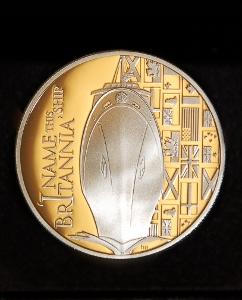
Royal yacht becomes treat for numismatists
 (CNS): A limited-edition $5 silver coin commemorating the Q,ueen’s diamond jubilee is now on sale for $89.65 at the Cayman Islands Monetary Authority’s Currency Section in the main Government building onElgin Avenue. Issued by the Royal Mint, the coin is named “the Launch of Ship” and commemorates the launch of the Royal Yacht Britannia. Only 100 of the coins will be available and each one comes with a special anniversary information card. This is the first of a two-coin collection marking the British monarch’s 60-year reign. The second Jubilee Coin assigned to the Cayman Islands will be minted later this year.
(CNS): A limited-edition $5 silver coin commemorating the Q,ueen’s diamond jubilee is now on sale for $89.65 at the Cayman Islands Monetary Authority’s Currency Section in the main Government building onElgin Avenue. Issued by the Royal Mint, the coin is named “the Launch of Ship” and commemorates the launch of the Royal Yacht Britannia. Only 100 of the coins will be available and each one comes with a special anniversary information card. This is the first of a two-coin collection marking the British monarch’s 60-year reign. The second Jubilee Coin assigned to the Cayman Islands will be minted later this year.
Each country within the Commonwealth received a special design for the jubilee illustrating a hallmark of the Queen’s 60-year reign that is of personal significance to the sovereign. The Britannia was commissioned in January 1954, the year after Queen Elizabeth II was crowned. This vessel took the Queen and members of the Royal Family on many visits around the Commonwealth, including her 1994 visit to the Cayman Islands, before it was retired in August 1997.
In 1887 Queen Victoria became the first monarch to use a coin to mark a royal jubilee. She went on to reign for 63 years – the longest of any UK royal.
The theme for Queen Elizabeth II’s jubilee celebrations throughout the Commonwealth where she remains a figurehead, is “Connecting Cultures”. The British monarch remains the head of state of the Cayman Islands, an overseas dependent territory, and events to mark her sixty year rule over her ‘subjects’ here kick off this Saturday, 26 May.
For more information visit: www.Facebook.com/CaymanIslandsProtocol; Twitter.com/CaymanProtocol; call 949-9809 or email CINA@gov.ky. Also, visit the UK’s official website: www.TheDiamondJubilee.org
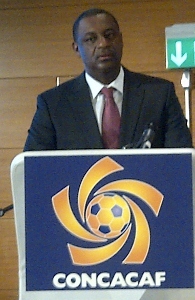
Jeff Webb officially elected president of CONCACAF
 (CNS): Updated — Cayman’s local football boss was unanimously elected president of CONCACAF Wednesday morning at the FIFA congress in Budapest, where he received a standing ovation for his acceptance speech. Jeff Webb attracted support from 40 countries to take up the regional football body’s top post and ran unopposed. Webb, who is president of the Cayman Islands Football Association (CIFA), succeeds Jack Warner as president of the sport’s governing body in North and Central America and the Caribbean (CONCACAF). Warner quit last June 20 during a corruption investigation by FIFA.
(CNS): Updated — Cayman’s local football boss was unanimously elected president of CONCACAF Wednesday morning at the FIFA congress in Budapest, where he received a standing ovation for his acceptance speech. Jeff Webb attracted support from 40 countries to take up the regional football body’s top post and ran unopposed. Webb, who is president of the Cayman Islands Football Association (CIFA), succeeds Jack Warner as president of the sport’s governing body in North and Central America and the Caribbean (CONCACAF). Warner quit last June 20 during a corruption investigation by FIFA.
Webb has overtwenty years in leadership positions in football, as president of the CIFA, FIFA Executive Committee (observer), chairman of the Caribbean Football Union (CFU) Normalisation Committee, member of the FIFA Transparency and Compliance Committee, deputy chairman of the FIFA Internal Audit Committee, and chairman of the CONCACAF Youth Committee.
Following Webb’s election a list of financial mismanagement allegations against former CONCACAF leaders, Jack Warner and Chuck Blazer, were outlined to officials at the congress. Blazer, who is said to be unwell, was not at the Budapest meeting when the audit of CONCACAF's finances was revealed. Blazer's 10 percent commissions on television and sponsorship deals, paid to an offshore company, helped push CONCACAF's staff costs to $9 million from an income of $38 million last year, according to the audit. Webb said he was "shell-shocked, dismayed and mad" as John Collins unveiled details of the alleged financial mismanagement discovered after a five month investigation into the regional footballing body’s finances.
Warner left FIFA in disgrace last year, but Blazer is still CONCACAF's representative on FIFA's executive committee but following a motion from the Bermuda delegate, the Congress voted that he should be removed from FIFA's executive. The vote is not binding on FIFA, however, as only the world governing body can remove an official from the executive, but it was carried by a majority of 34 delegates with only two voting against. A succession of delegates demanded a commission of inquiry, the wholesale removal of CONCACAF's executive committee, as well as action against Blazer.
Collins also revealed that he had discovered that the $22.5m Joao Havelange Centre of Excellence in Trinidad is not owned by CONCACAF as members believed but by two companies owned by former president Warner. Collins warned Congress that attempts to reclaim the property or its value might be compromised by other legal actions outstanding against the Centre of Excellence.
Webb told the congress that one early cost saving measure under consideration was ending the $1m-a-year rental of the confederation's offices in Trump Tower in New York's Fifth Avenue and he promised to call an Extraordinary Congress later this year when full financial reports and assessments of liabilities would be available.
The new president vowed to concentrate on the game and promised a shift from "politics and economics" to football, adding that CONCACAF nations should work on improving soccer and strive to win the World Cup in 2026.